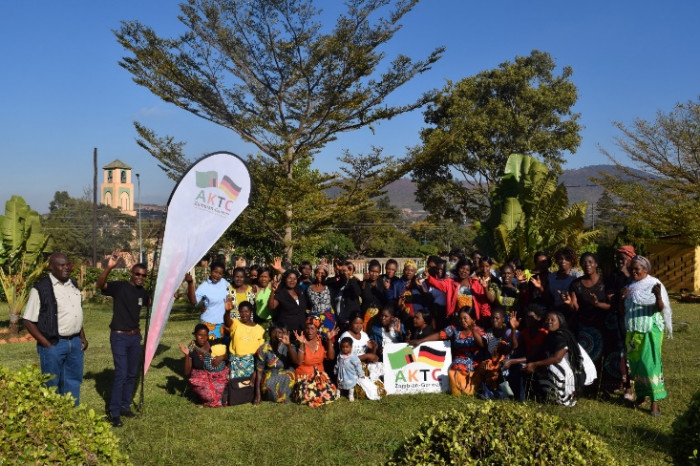
The Zambian-German Agricultural Knowledge and Training Centre in collaboration with the Conservation Farming Unit, has developed a women in agriculture training strategy to increase the participation women in the sector.
The participation of women in the agricultural sector in Zambia and Africa at large has always been so low as compared to that of men. These low statistics are seen across the entire sector, be it in land ownership, access to agricultural related financial schemes and participation in trainings. For years now, the Zambian Government, like many other African Countries, has launched several gender mainstreaming programmes in different sectors to reduce the gender inequities that have been in existence for a long time now.
To support this initiative and increase the participation of women in agriculture, the Zambian-German Agricultural Knowledge and Training Centre (AKTC) has developed a training strategy regarding women in agriculture together with the Conservation Farming Unit (CFU).
On the 8th of July 2019, a women’s vegetable production training was organised by AKTC and CFU and took place in Chipata district to train rural women in the Eastern part of Zambia. 38 women coming from 8 other districts across Eastern province attended the training. This group comprised lead farmers and farmer group coordinators operating with the CFU in their respective districts.

This 4-days training focused on two different topics: Farming as a Business and Vegetable Production. The farming as a business training concentrated on record keeping, cash flow budget, break even analysis and general farm management, whereas the vegetable production training (with focus on tomato growing) emphasised the following areas; site selection, irrigation and water management, fertiliser application, chemical application, soil management and general crop (tomato) management. The overall goal of the training was to teach farmers the importance of handling farming as any other business enterprise.
To effectively engage with participants and foster interaction, the training was given in Chewa, the local language, enabling the farmers to link what was being taught with their personal experience.
Undoubtedly, the agricultural sector can be an important driver of economic growth and poverty reduction, but the sector is performing far below its potential. One of the reasons is that women, who often are a crucial resource in agriculture and the rural economy, face constraints that reduce their productivity. Through the joint efforts of the various sector players, the contribution of women to agricultural and food production can be reinforced.
For further information please contact Grenda Mweemba Malamo (grenda.mwemba [at] aktczambia.com), Innocent Maphango (innocent.maphango [at] aktczambia.com) or visit our website www.aktczambia.com
